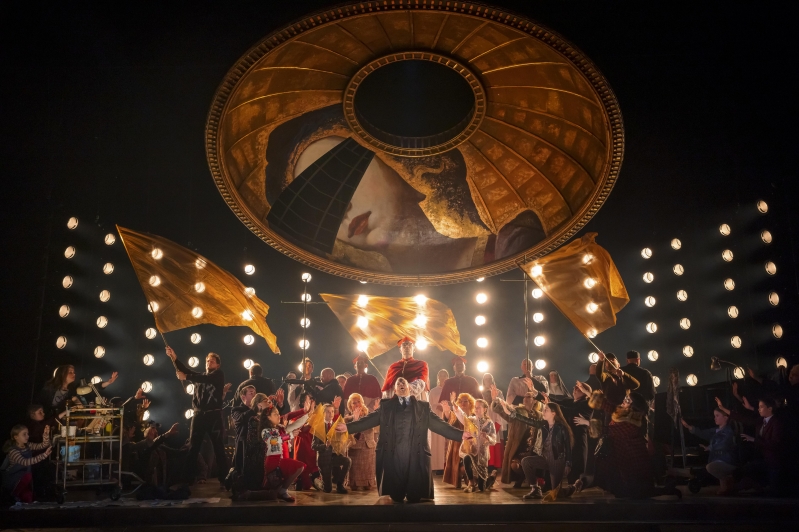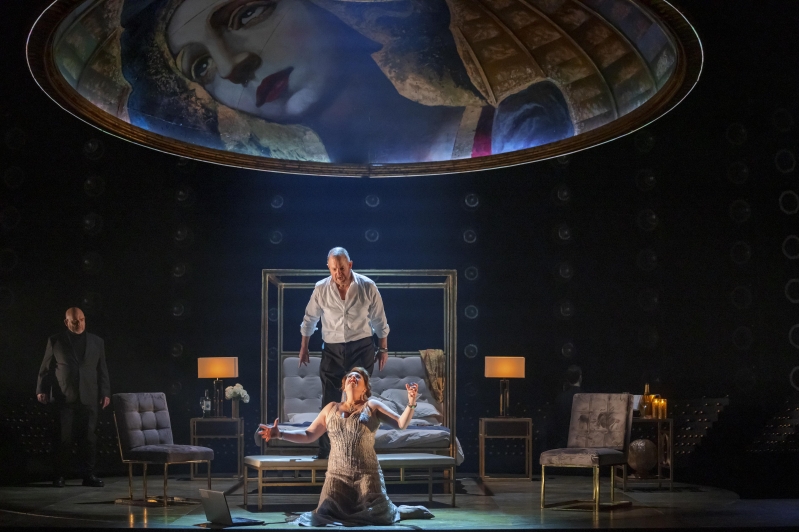Opera doesn’t get more dangerous or more sinful than Puccini’s Tosca. It’s a world where desire is deadly, jealousy burns hotter than incense, and one wrong glance can seal your fate. Enter our very own inferno and see how Puccini serves up all seven of the deadly sins in this intoxicating Roman drama.

Lust
Forget romance. In Tosca, lust is raw and all-consuming. Baron Scarpia doesn’t just desire Tosca, he aches to possess her. In Act I’s famous Te Deum, the church resounds with sacred praise, but Scarpia’s thoughts are anything but holy. As incense swirls, he revels in his obsession, practically thanking heaven for delivering Tosca into his grasp. It is one of opera’s most shocking contrasts: sacred music drenched in unholy lust.
Gluttony
Scarpia’s appetite doesn’t stop at lust. In Act II, while Cavaradossi screams under torture, he calmly orders supper. He sips wine and savours meat, grumbling that the cries have ruined his appetite. Gluttony here is not just a sin at the table. Scarpia consumes food, power, and suffering with the same relish.
Greed
Greed in Tosca is not for money. It is for control. Scarpia hoards power, using his office to crush political opponents and bend Tosca to his will. In their Act II confrontation, he makes his infamous bargain: Cavaradossi’s life in exchange for Tosca’s body. Greed drives every move, from ownership of Rome to people to flesh.
Sloth
No one in Tosca is idle, but sometimes being slow is deadly. In Act II, Tosca falters as Scarpia corners her, pausing to pour her soul into “Vissi d’arte, vissi d’amore” (“I lived for art, I lived for love”). Her hesitation nearly costs her everything. And in Act III, Cavaradossi lingers too long on his dreams of Tosca in “E lucevan le stelle”, delaying escape until it is too late. In Tosca, sloth is hesitation, fatal when seconds matter.
Wrath
Wrath burns through every act. Scarpia channels it into intimidation and torture, smiling coldly as Cavaradossi suffers. But wrath is also Tosca’s weapon. In one of opera’s most iconic moments, she seizes the knife, plunges it into Scarpia, and hisses, “Questo è il bacio di Tosca!” (“This is Tosca’s kiss!”). It is fury turned into liberation, at least for a moment.
Envy
Scarpia isn’t the only sinner in Tosca. Jealousy is Tosca’s fatal flaw, and Scarpia knows it. From her entrance she rages that Cavaradossi is painting another woman, and Scarpia fans the flames mercilessly. That envy pushes Tosca into choices that unravel everything, making jealousy the spark that ignites the tragedy.
Pride
And then there is pride. Scarpia struts with arrogance, certain that no one can resist him, his hubris blinding him to Tosca’s strength. But Tosca also clings to pride: the dignity of an artist and a woman of faith. In “Vissi d’arte” she cries out that she has lived for beauty and love, not degradation. Pride in Tosca can be poisonous or noble, but it always comes at a cost.

Puccini’s opera is a feast of sin and seduction. Every deadly urge is brought to life with soaring music and devastating drama. Don’t just read about it: come and feel it for yourself. Tosca opens in Cardiff before touring to Southampton, Llandudno and Bristol.



